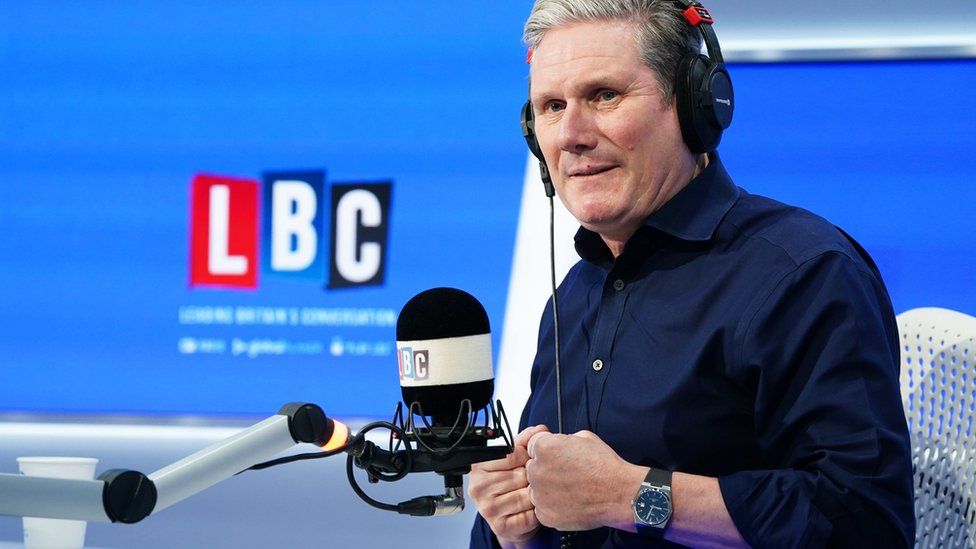ARTICLE AD BOX
 Image source, PA Media
Image source, PA Media
By Becky Morton
Political reporter
Sir Keir Starmer has described Labour's policy of eventually spending £28bn a year on green energy projects as a "confident ambition".
The party rowed back on its original pledge last year, saying it would "ramp up" to the reach the figure after 2027, rather than hitting it in the first year of a Labour government.
It is now facing questions over whether this could be watered down further.
Sir Keir told LBC the policy was subject to the party's "fiscal rules".
These include that debt has to be falling as a share of the size of the economy in five years.
Asked whether he could guarantee the £28bn figure would be reached at some point in the first term of a Labour government, if the party wins power, the Labour leader said: "We're talking about where we might be in 2027 so being a careful and cautious former lawyer I know that the world can change."
He added: "I'm confident that we can get to that figure but in the end the fiscal rules come first."
Pressed by journalists over his commitment to the policy following his new year speech on Thursday, Sir Keir said the party would borrow less if it would break the party's self-imposed fiscal rules.
He highlighted the party's aim of generating all electricity without using fossil fuels by 2030, saying he was "absolutely committed" to this target.
However, scaling back the party's investment promise could make this harder to deliver.
Labour first announced plans to spend £28bn a year until 2030 on green projects like offshore wind farms and developing batteries for electric vehicles in 2021.
The flagship Green Prosperity Plan, which would be funded mainly by borrowing, created a clear dividing line with the government.
But last June shadow chancellor Rachel Reeves pushed back the target, saying the party needed to be "responsible" with the public finances, given the poor economic backdrop and rising cost of borrowing.
The Conservatives have sought to use the policy to attack Labour's economic credibility, claiming it is unaffordable and would mean taxes would have to increase.
There have also been internal divisions within Labour over the policy, with some raising concerns privately about whether it is affordable in the current economic context.
In November Labour denied claims it could scale back the plan further, after a senior party source suggested to the BBC the £28bn a year figure might never be reached.

 1 year ago
28
1 year ago
28








 English (US) ·
English (US) ·